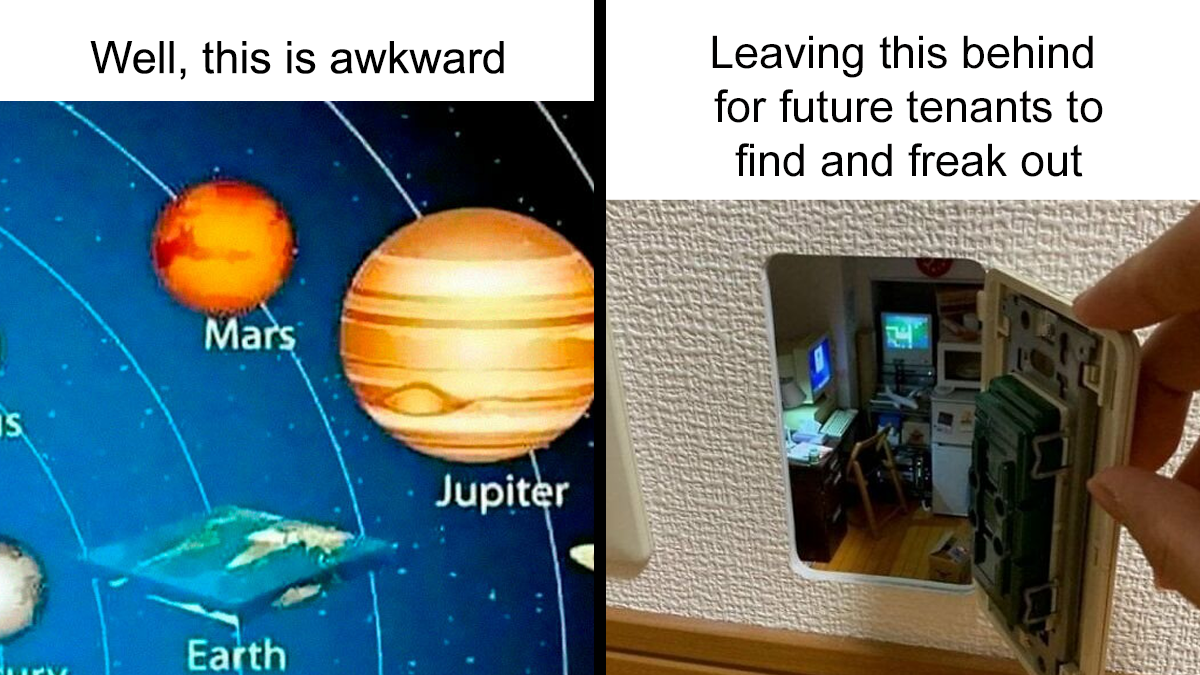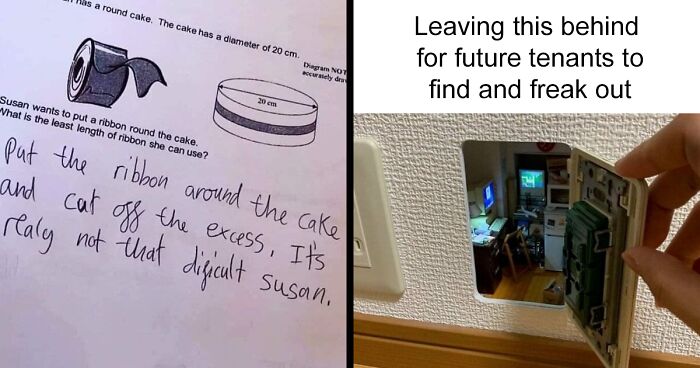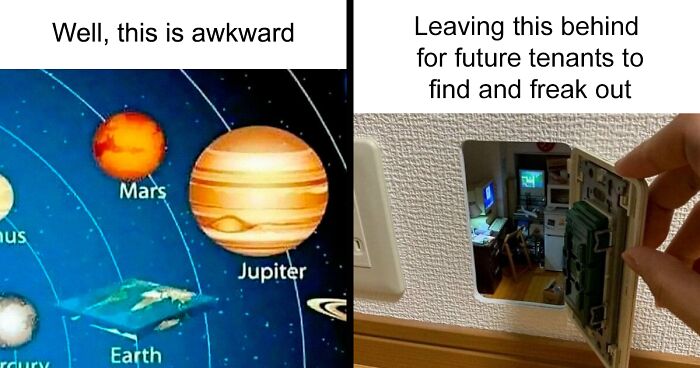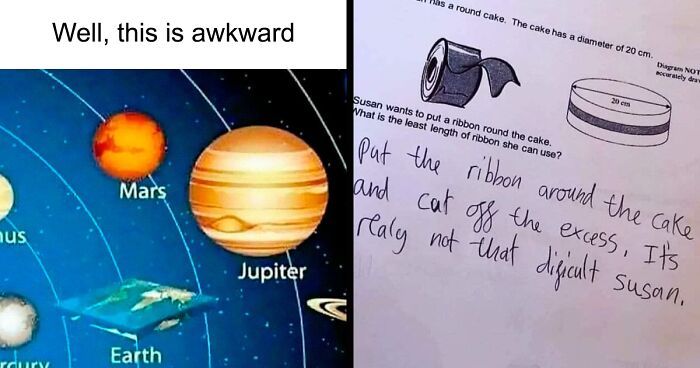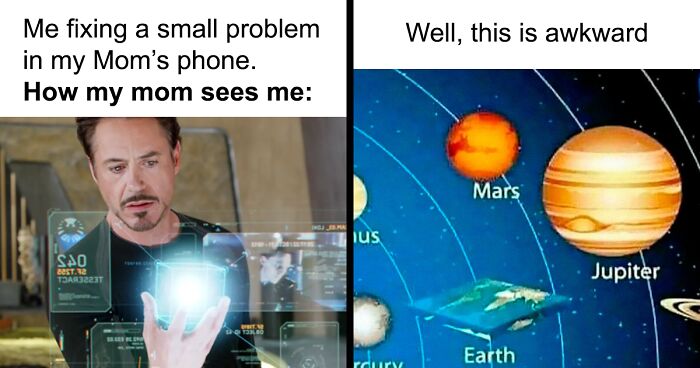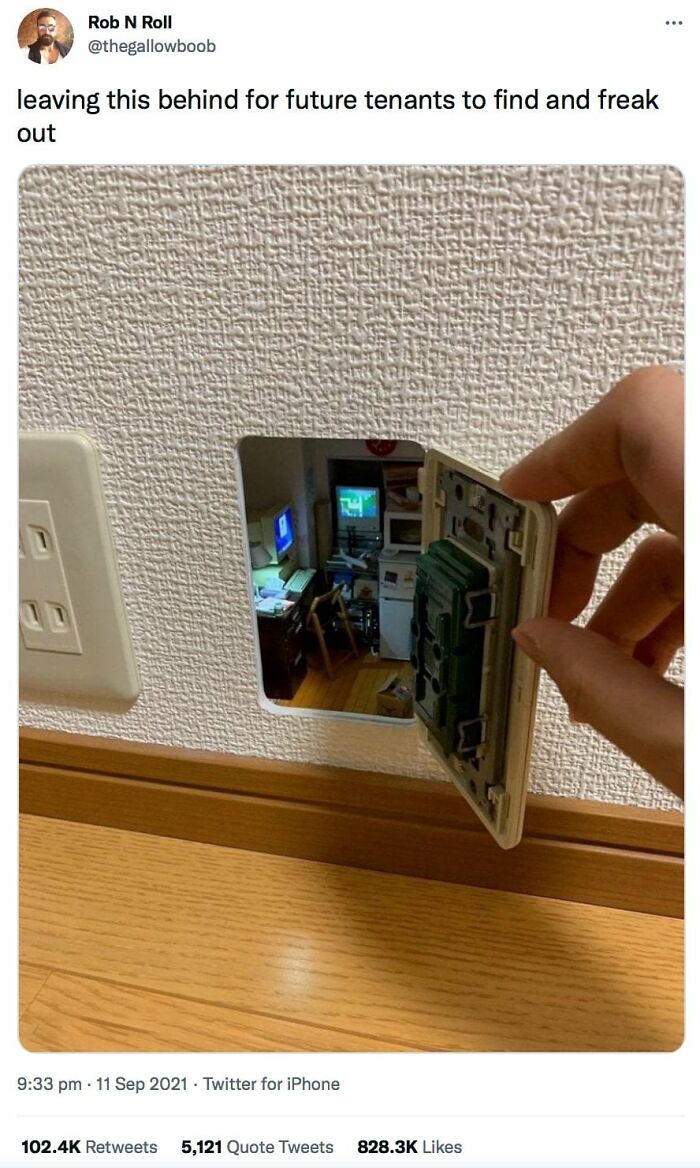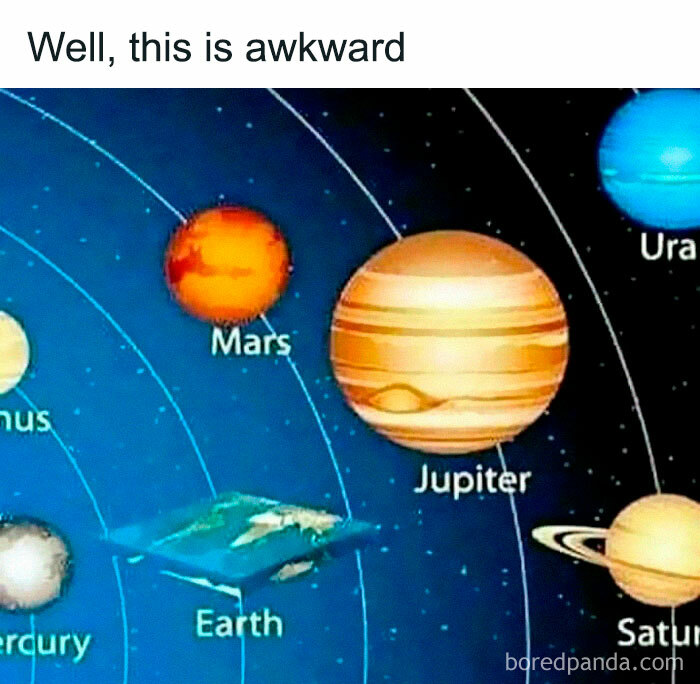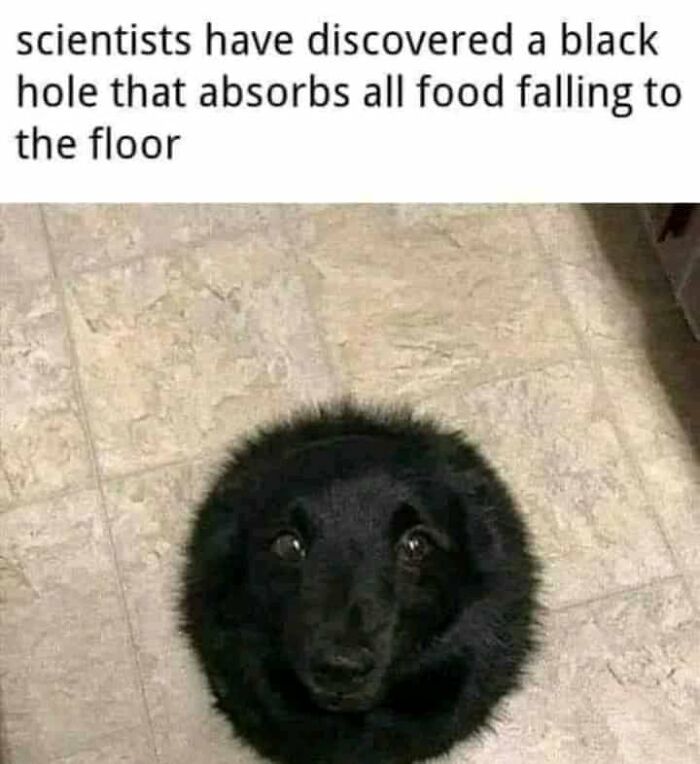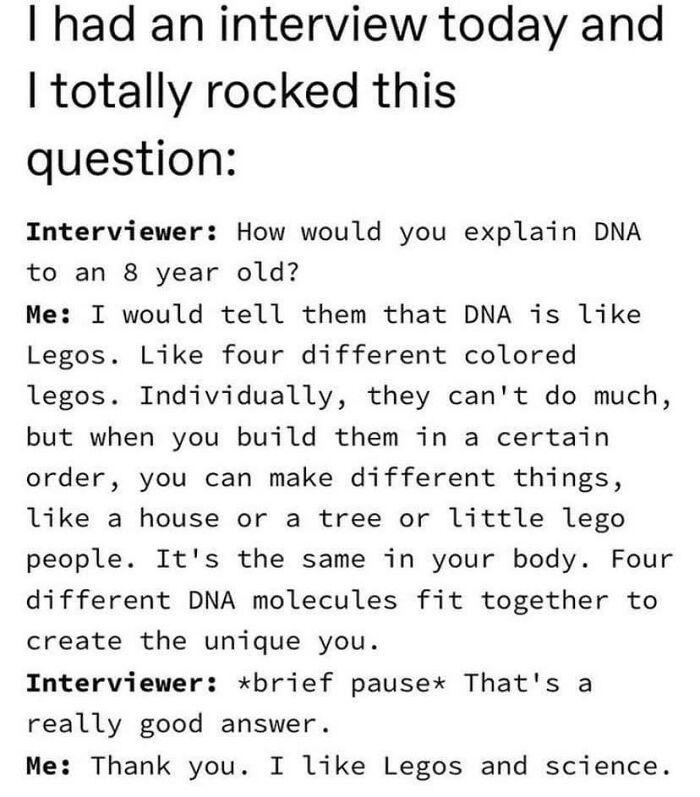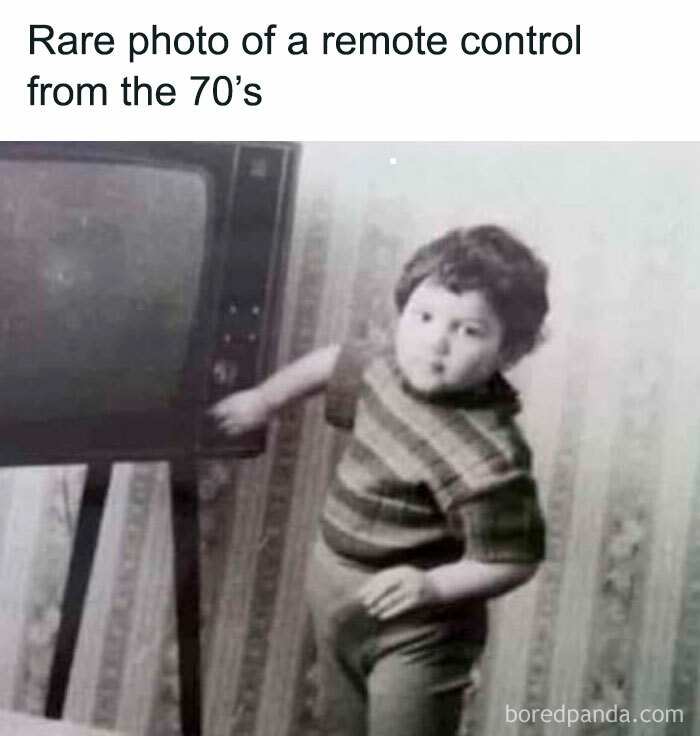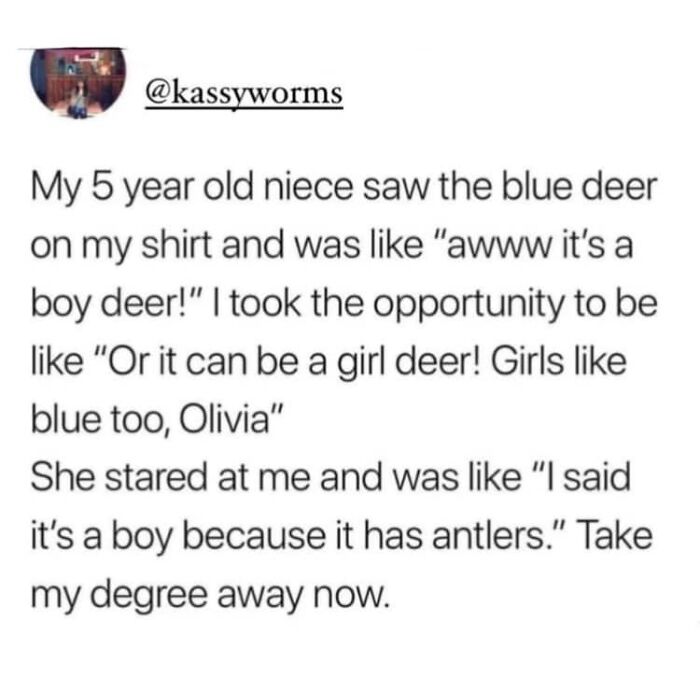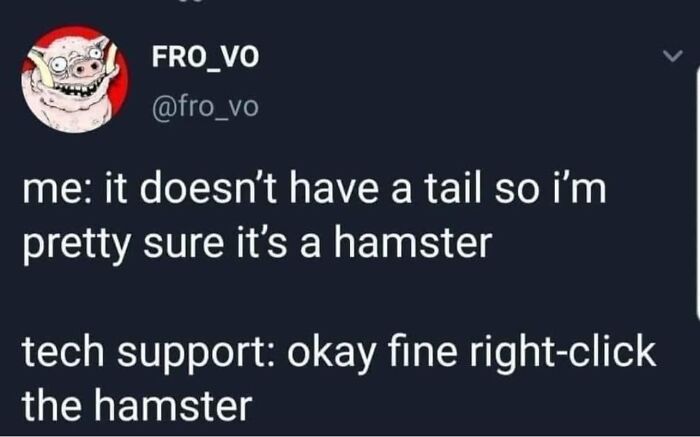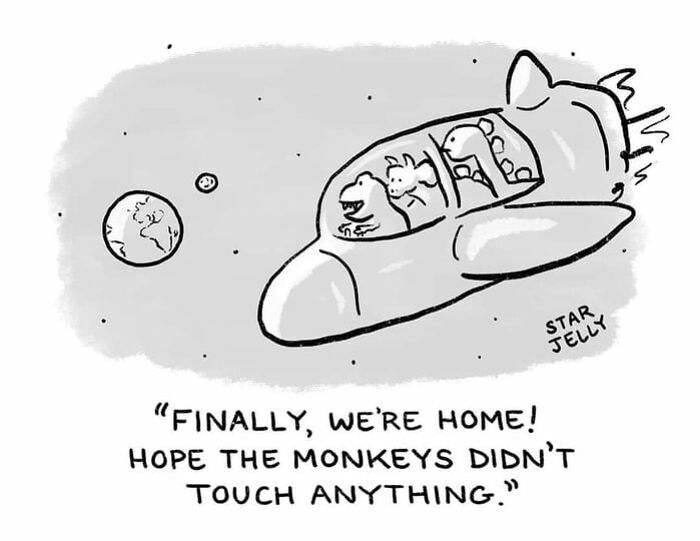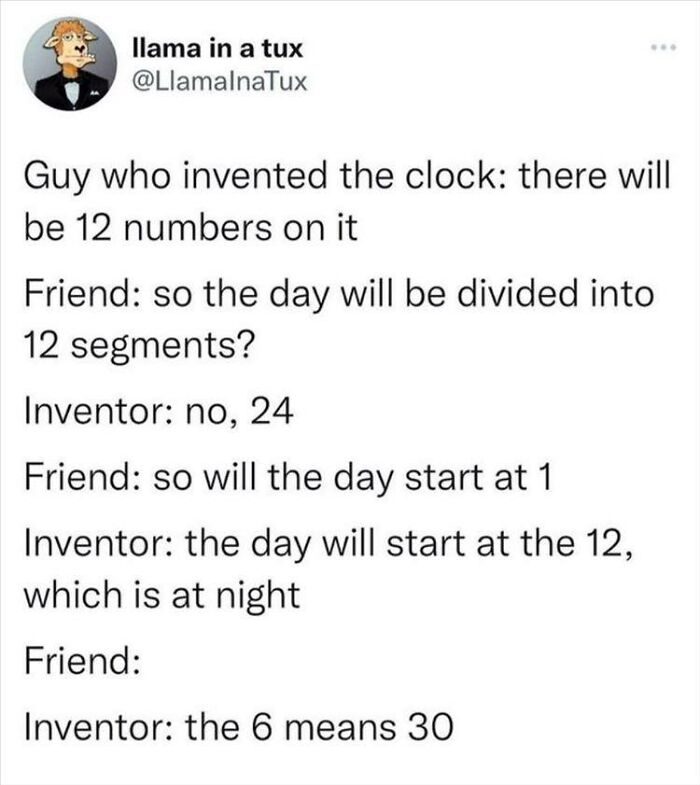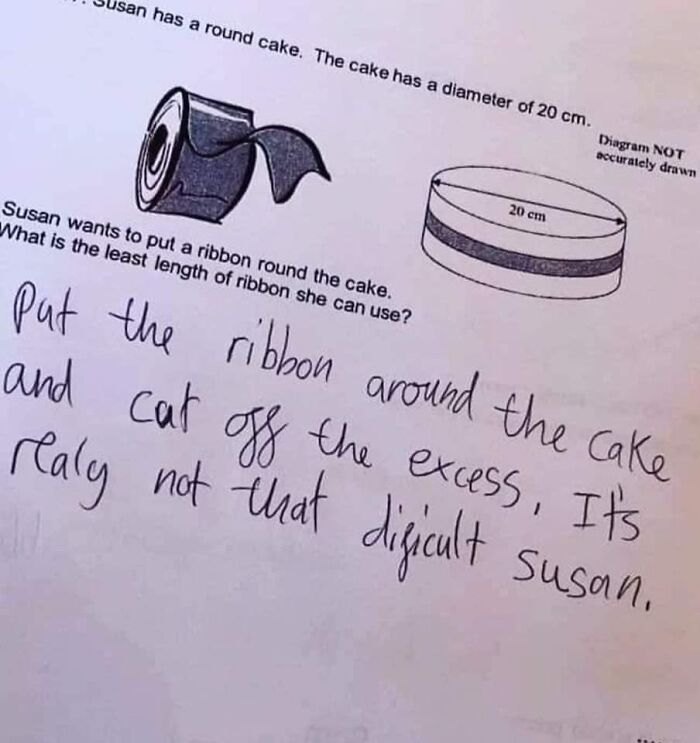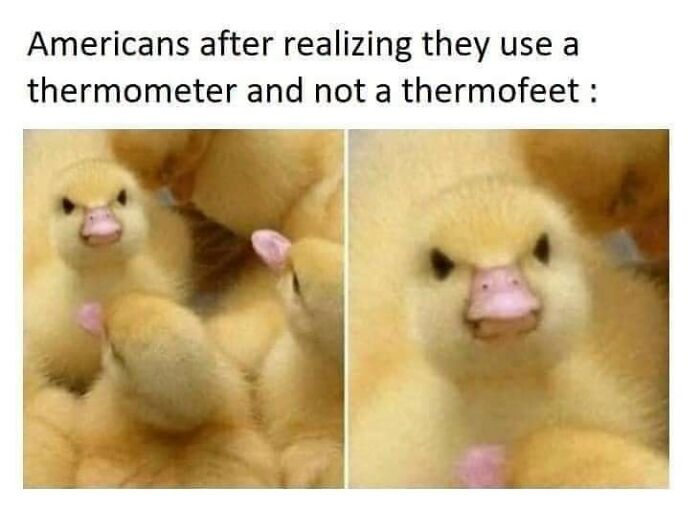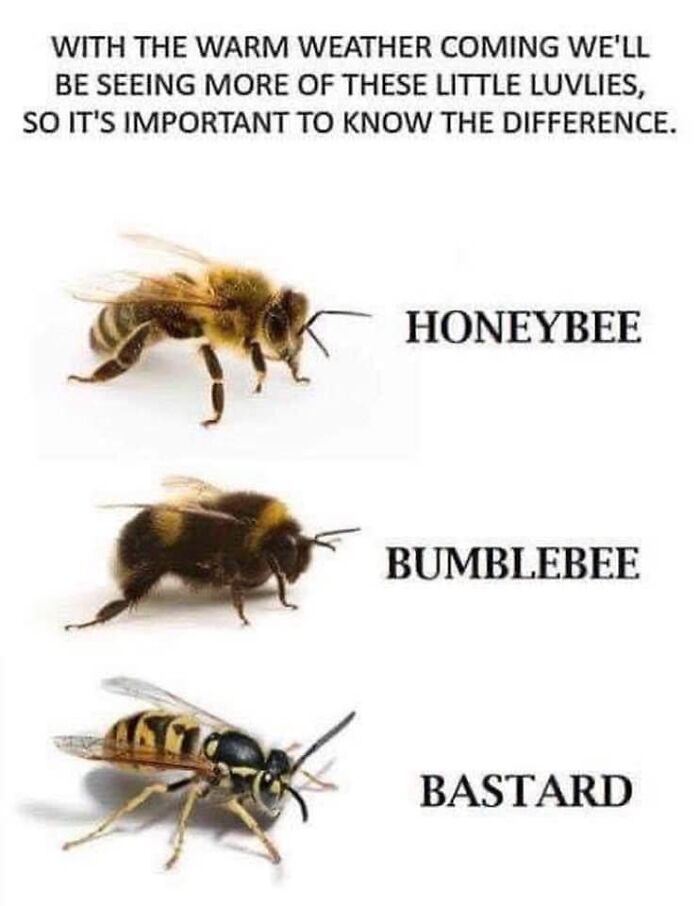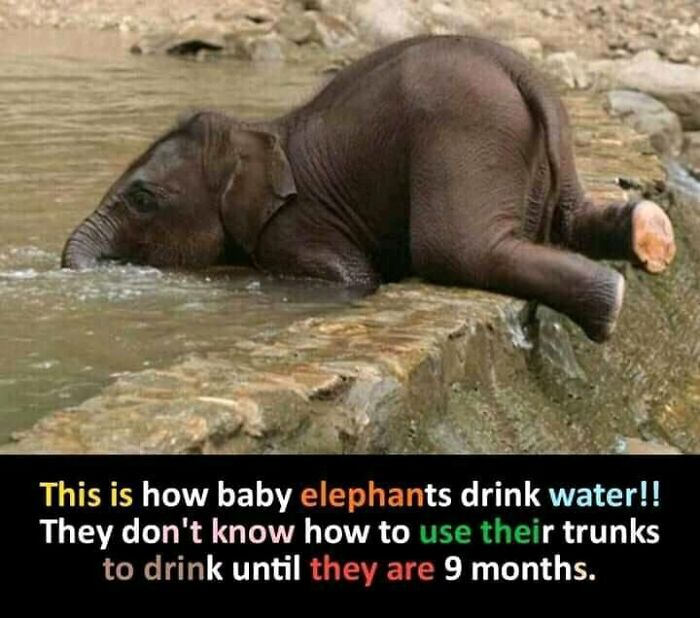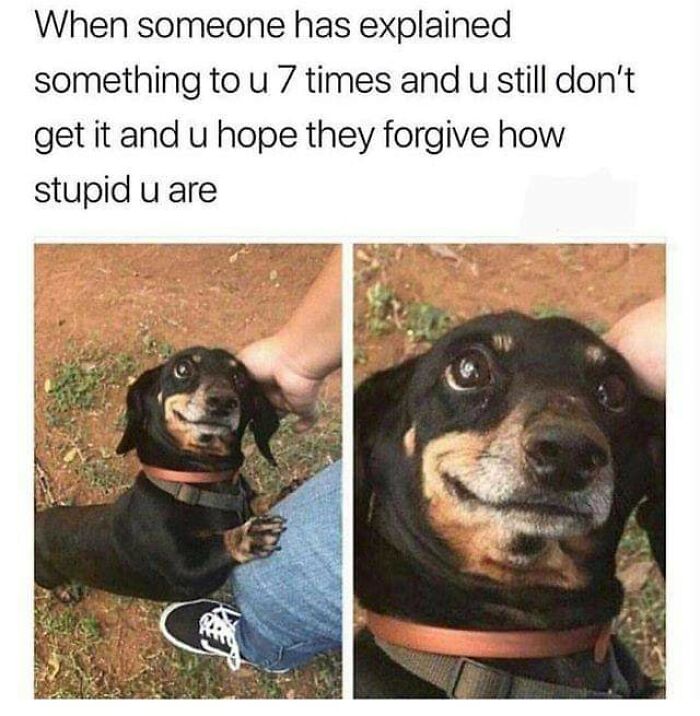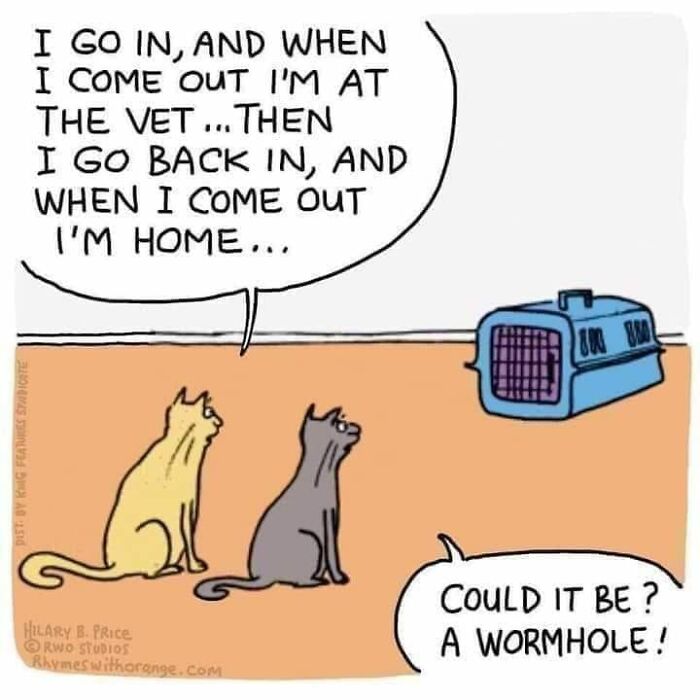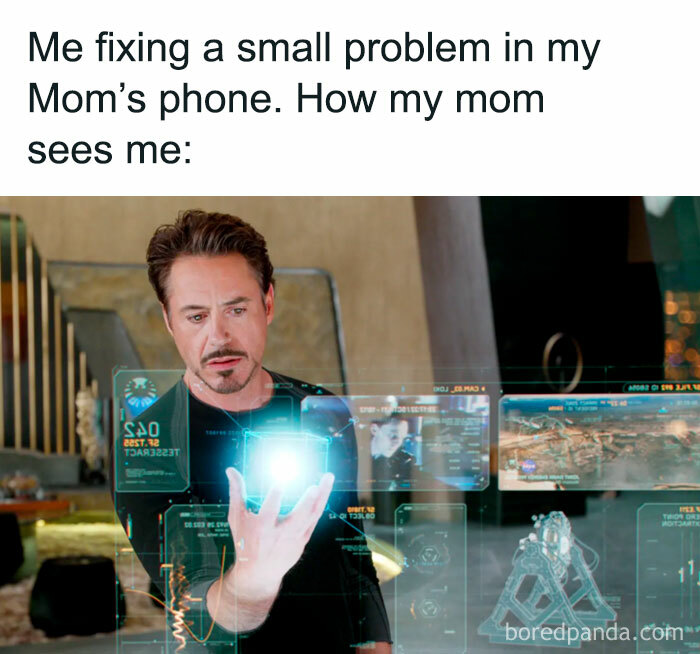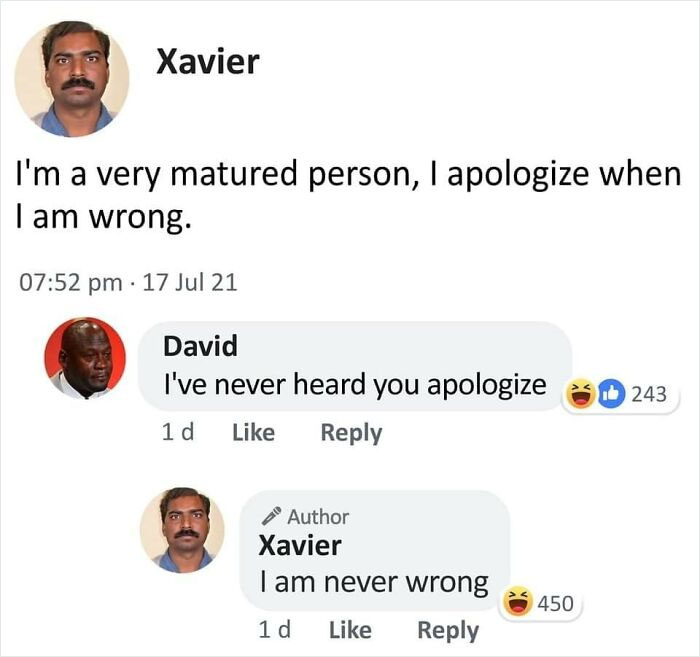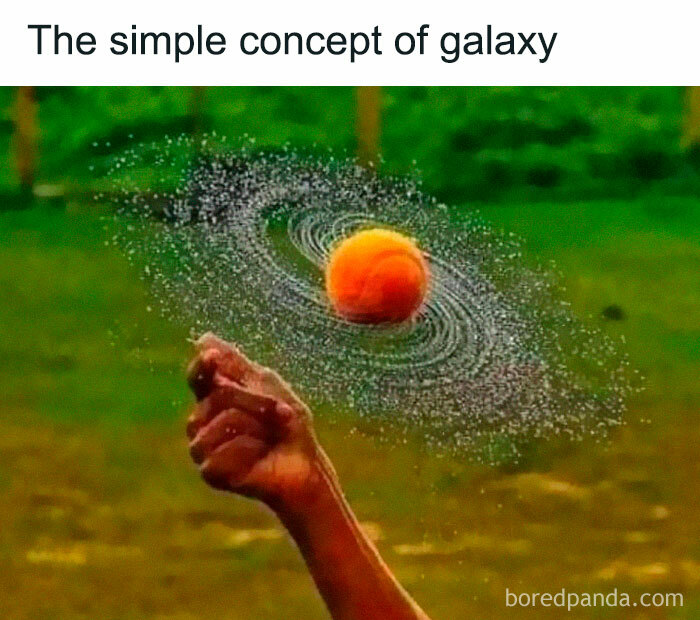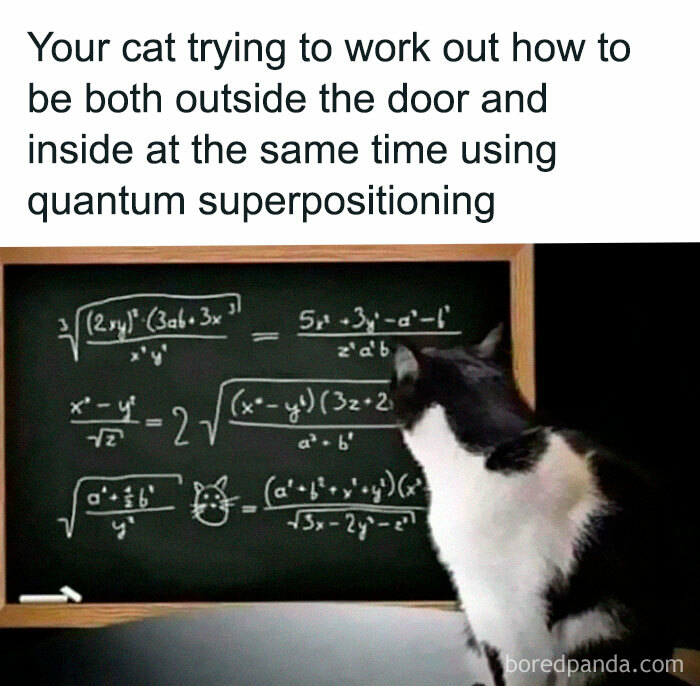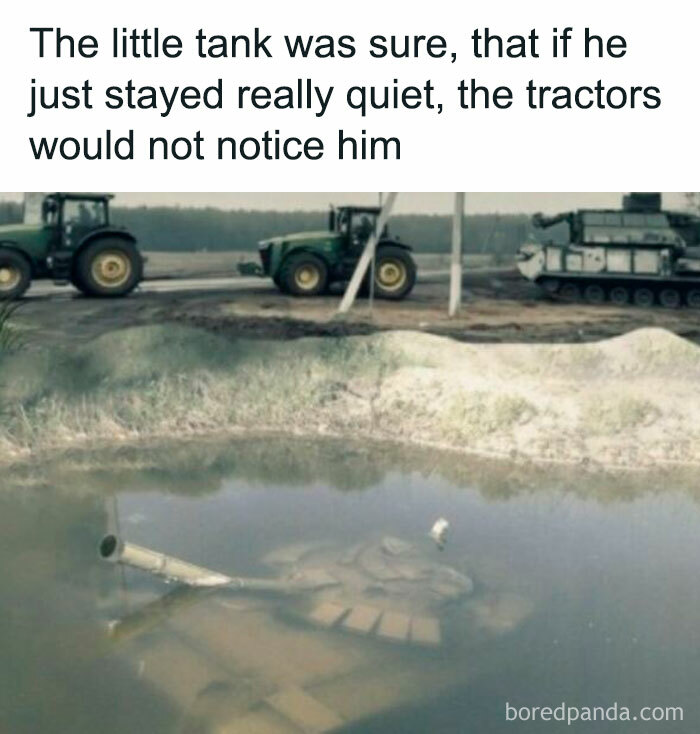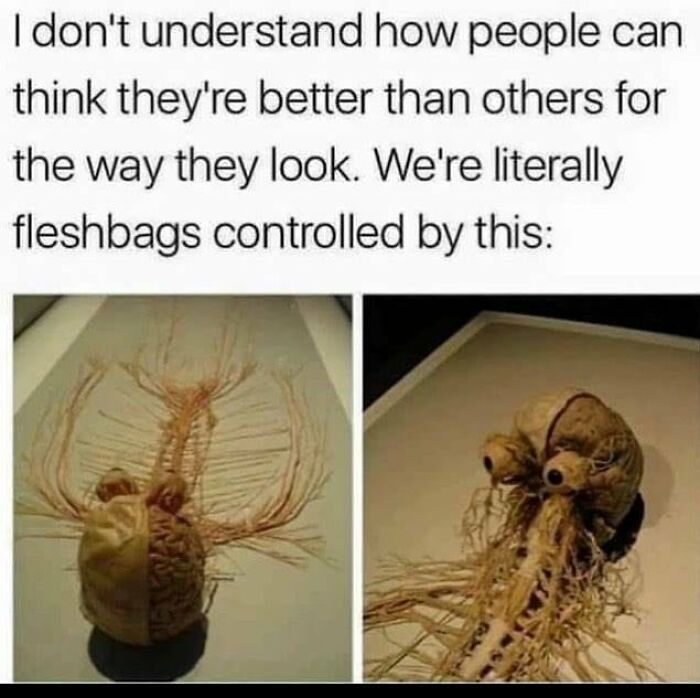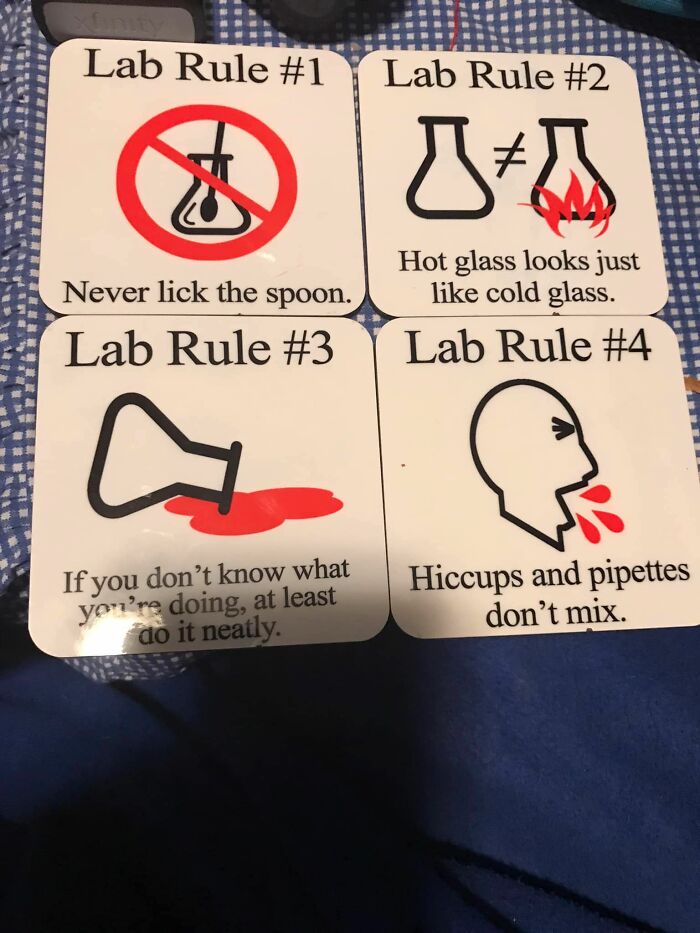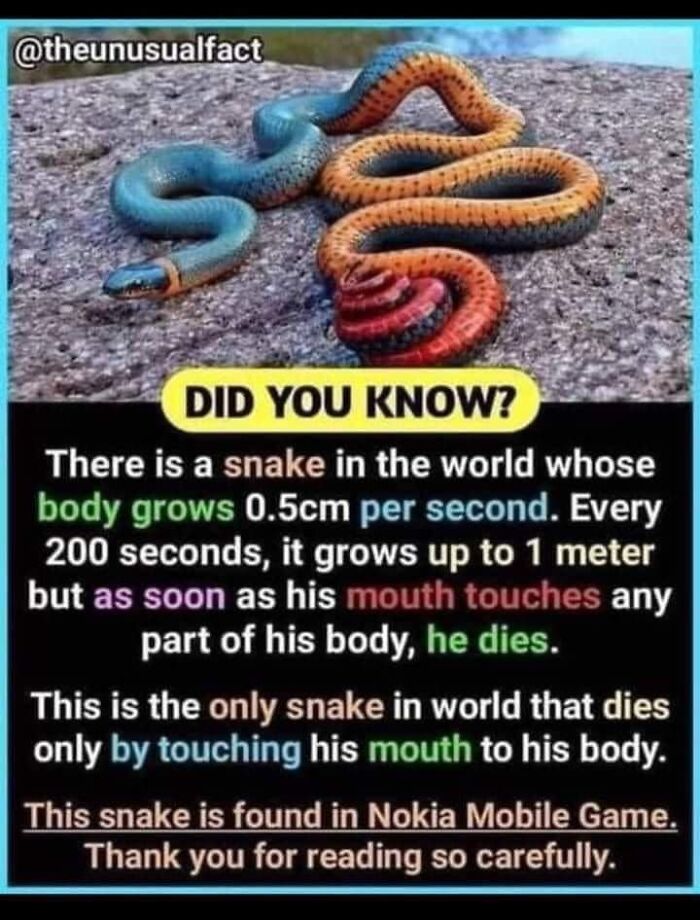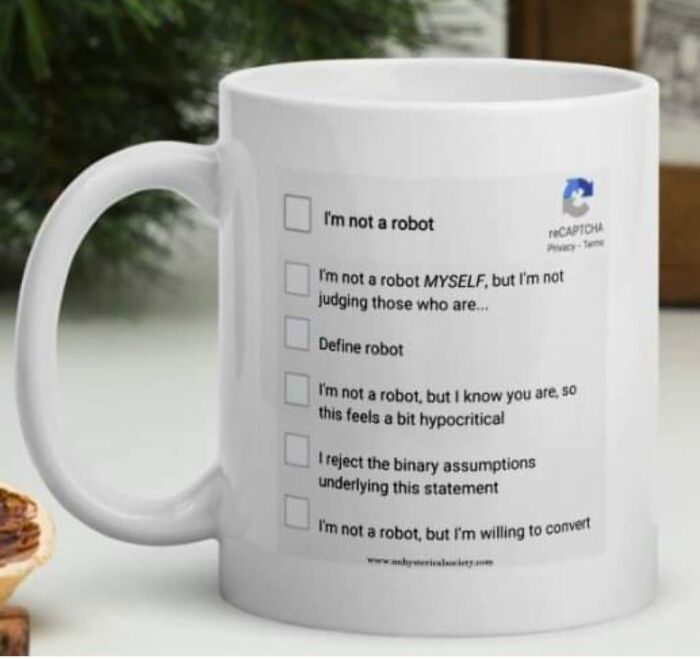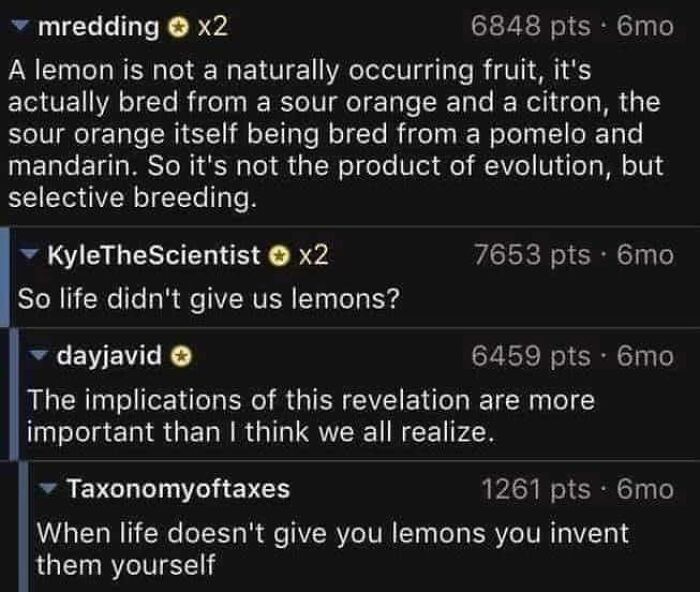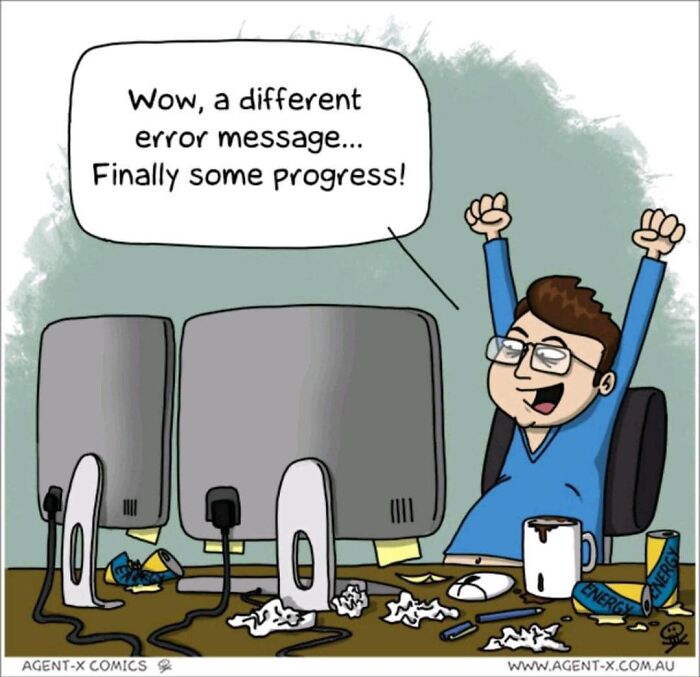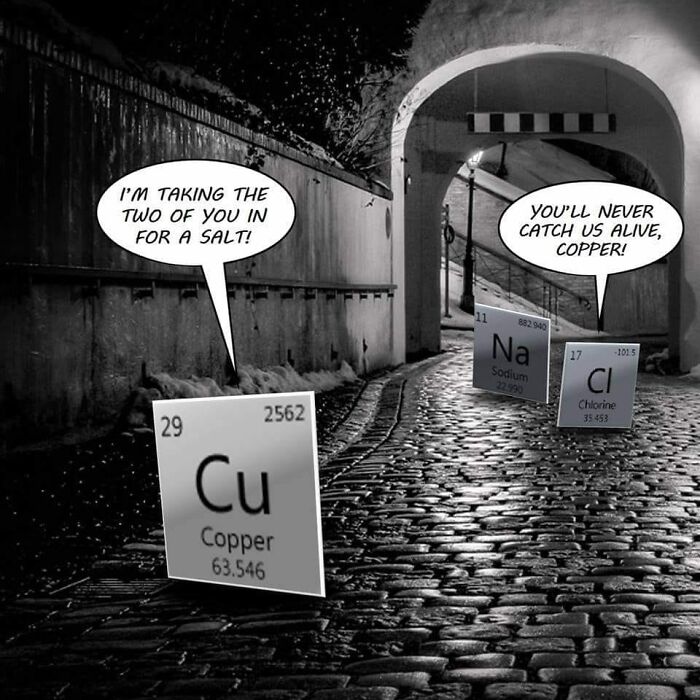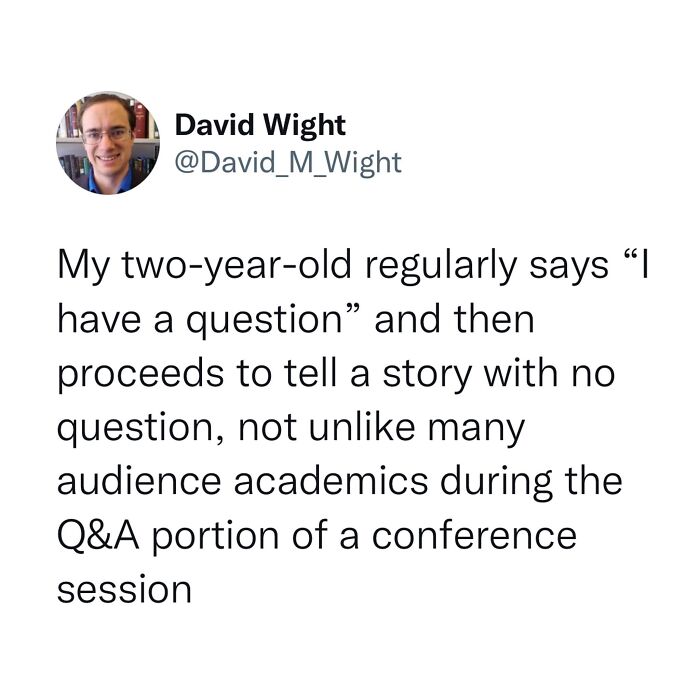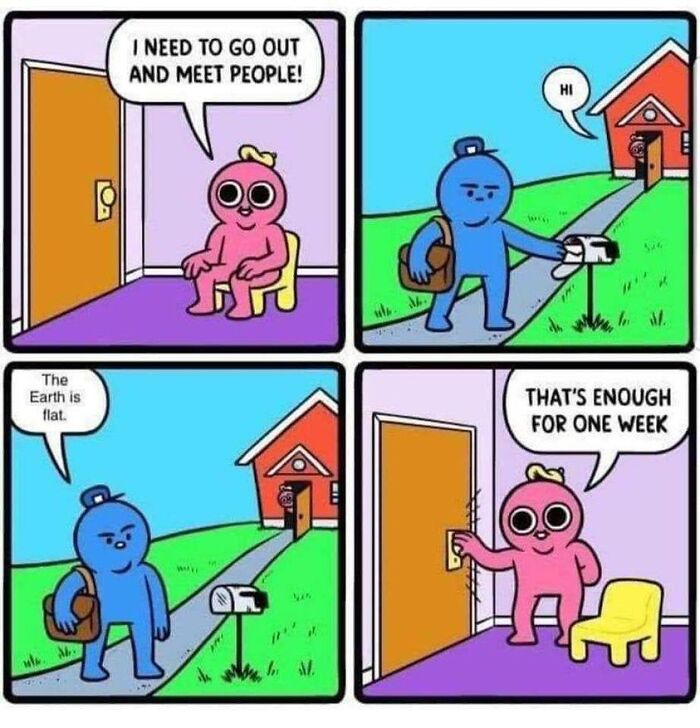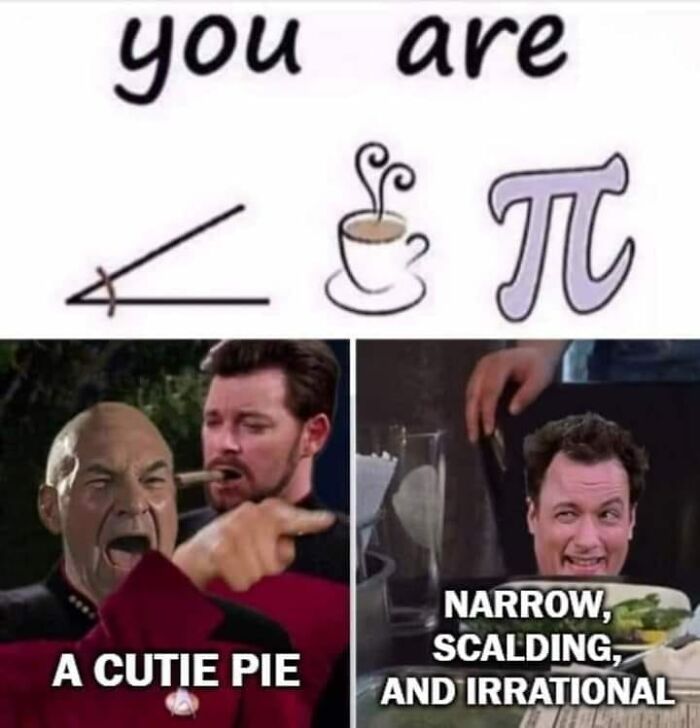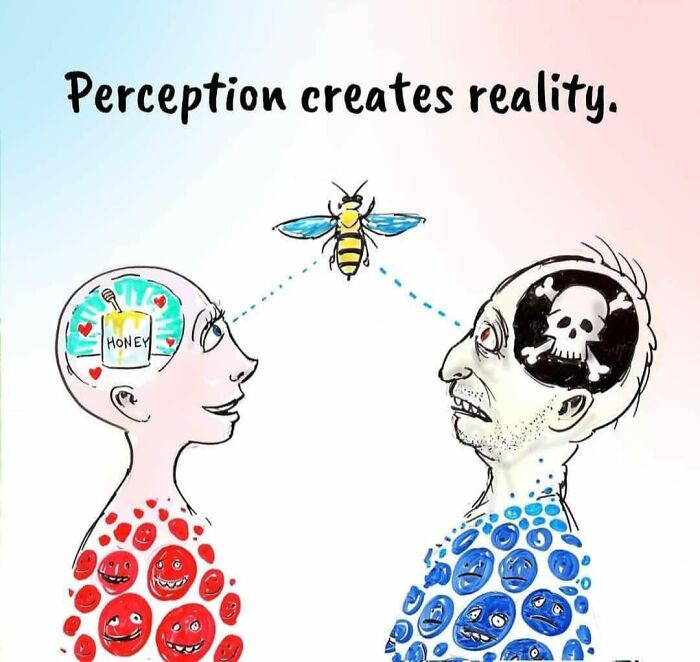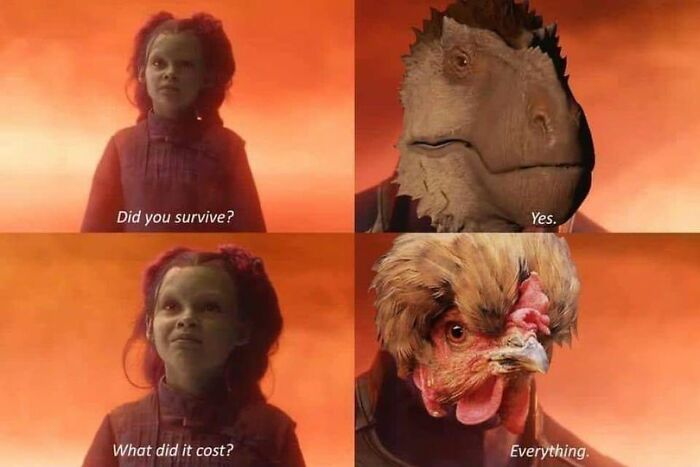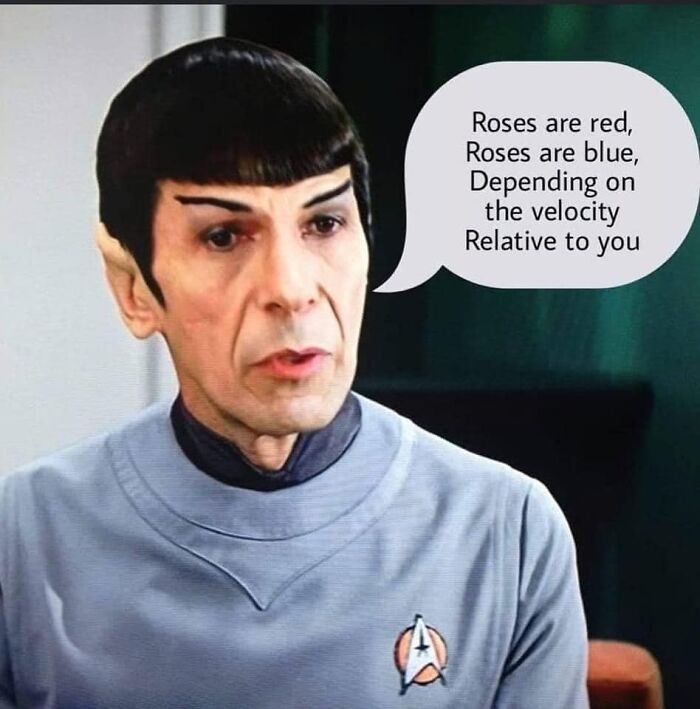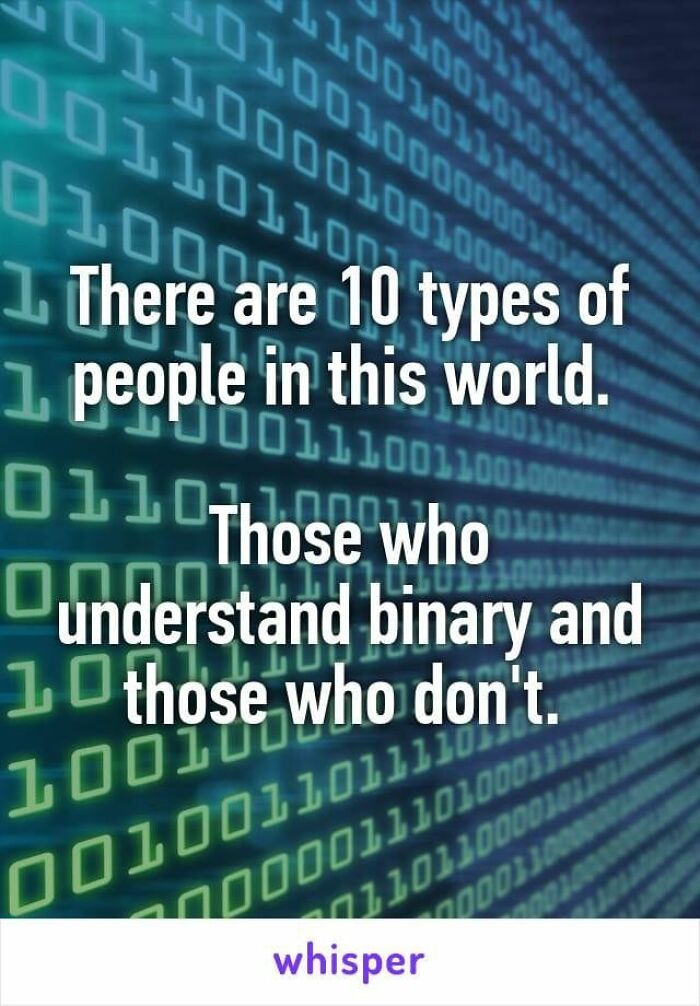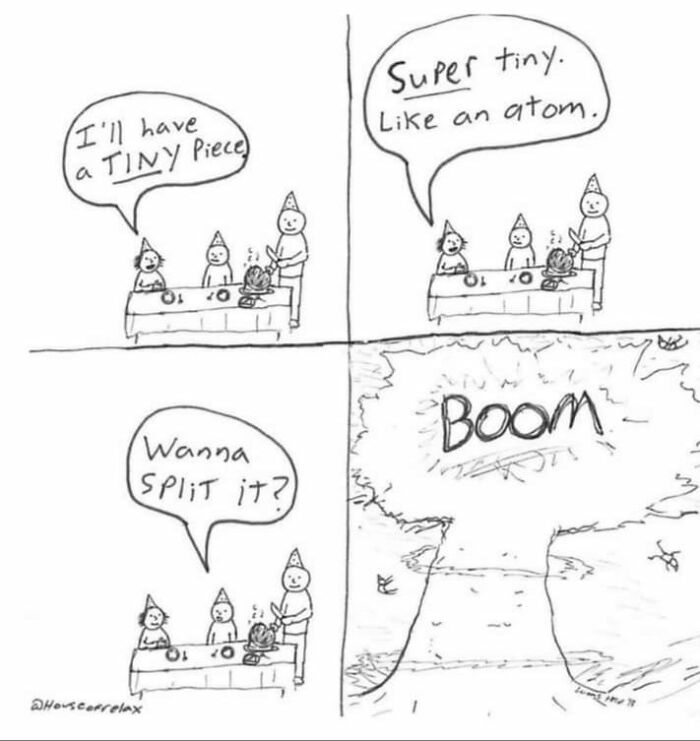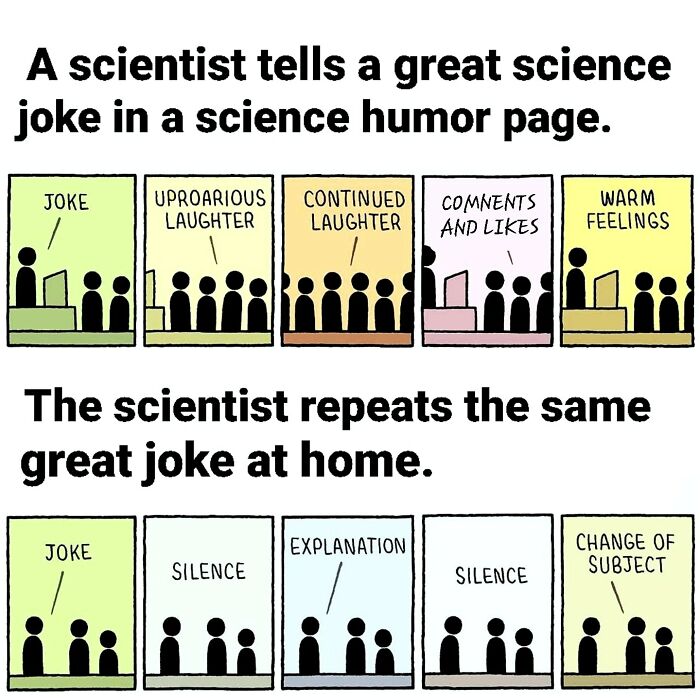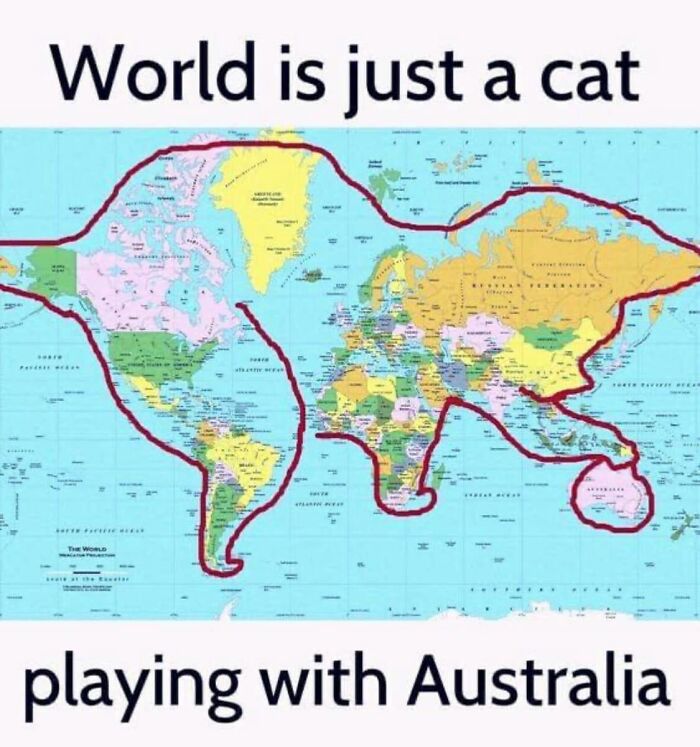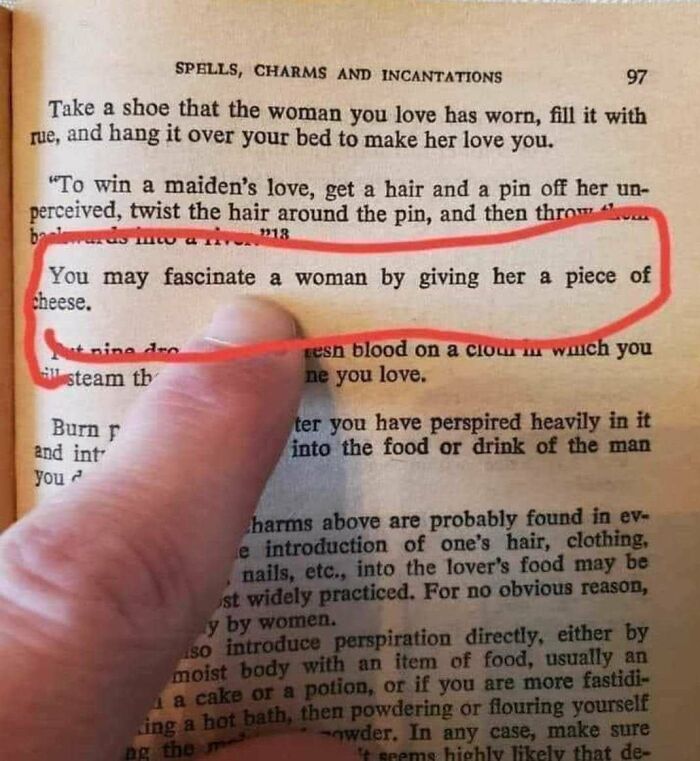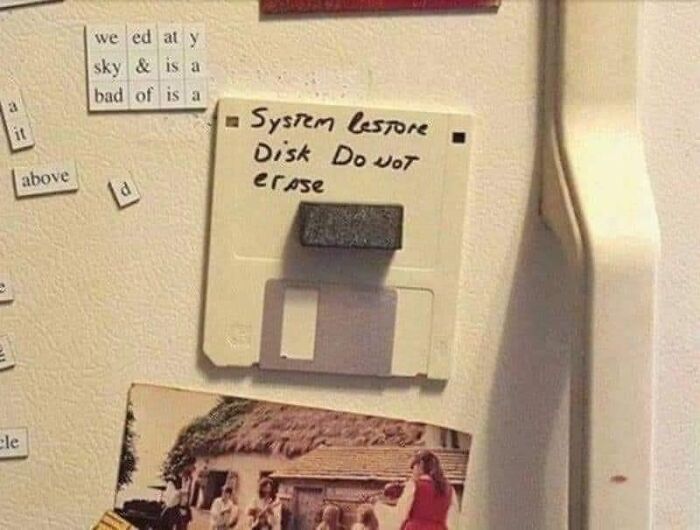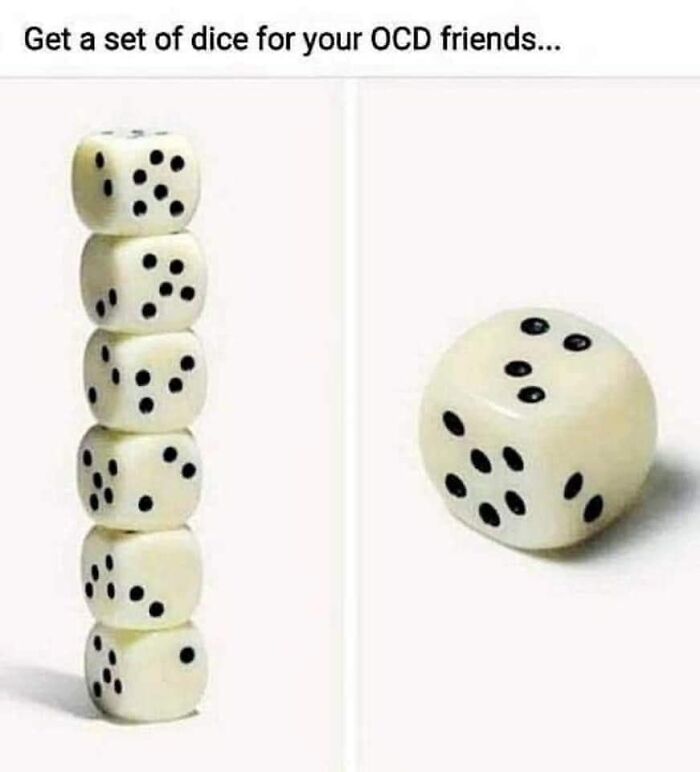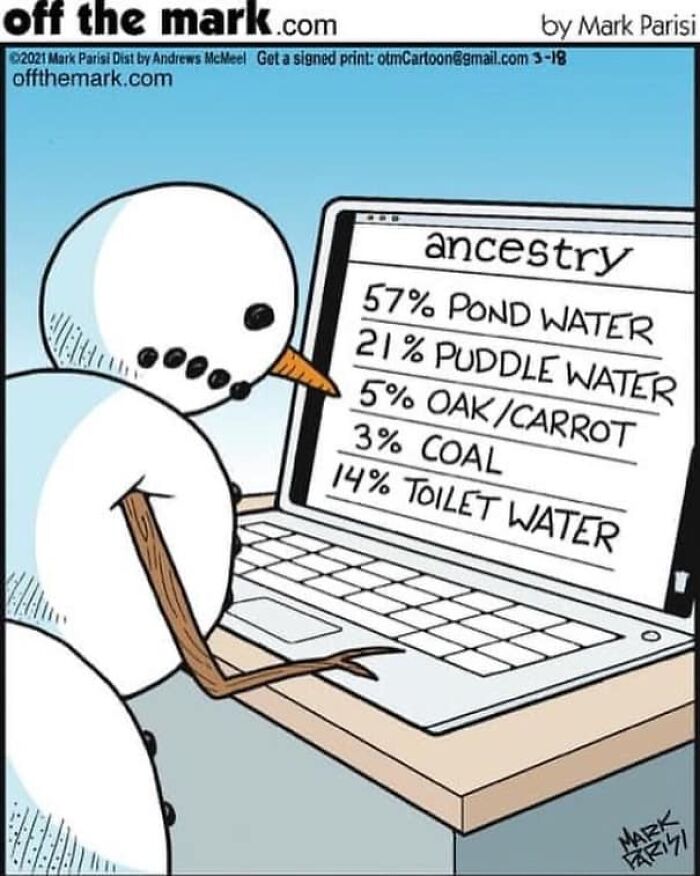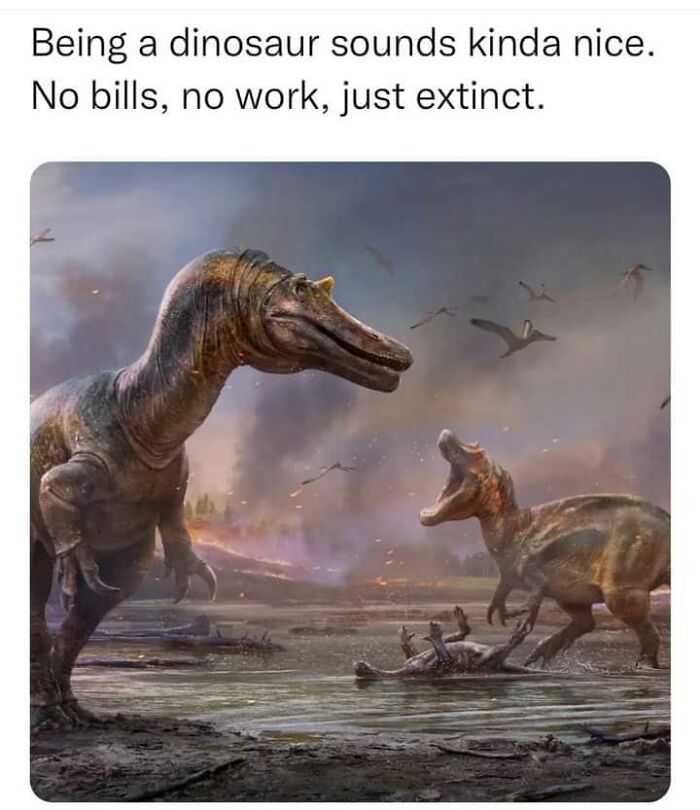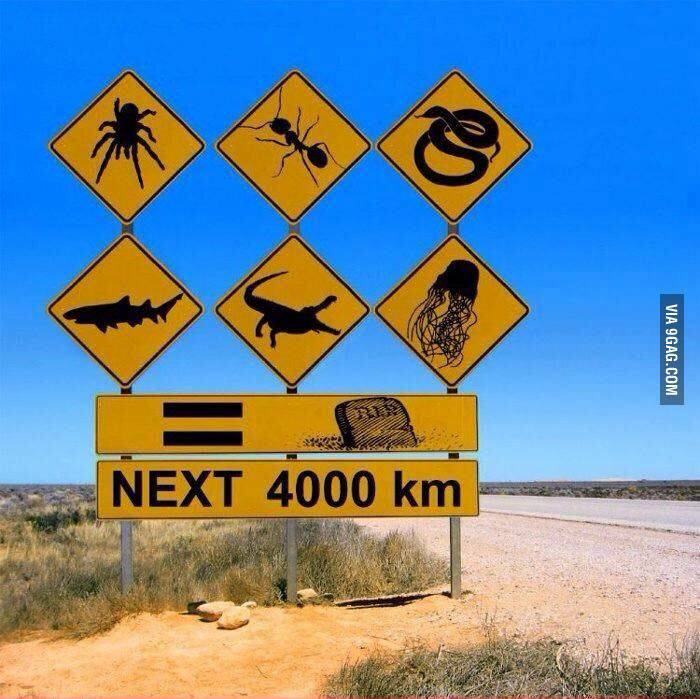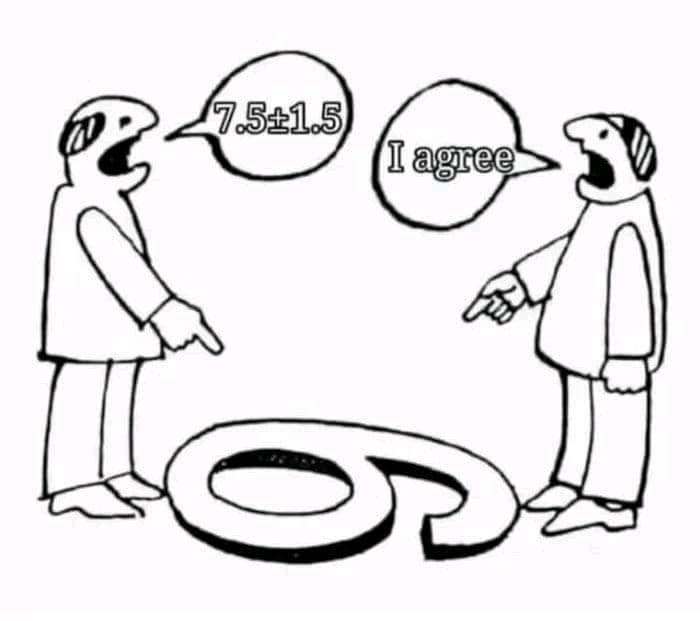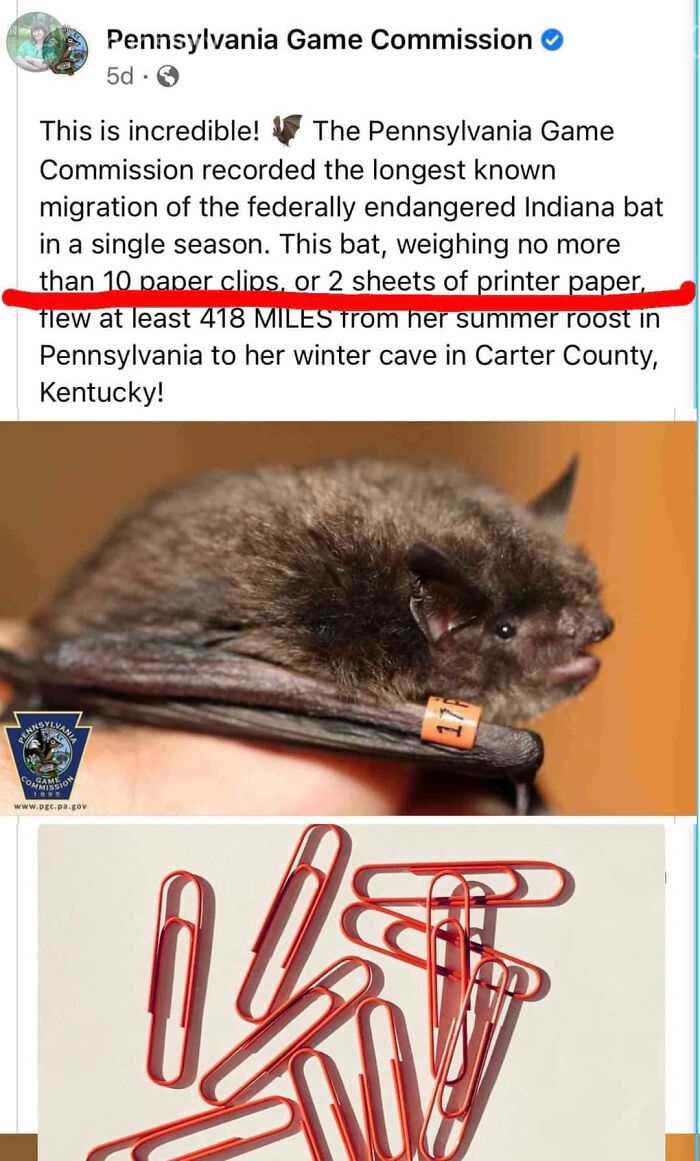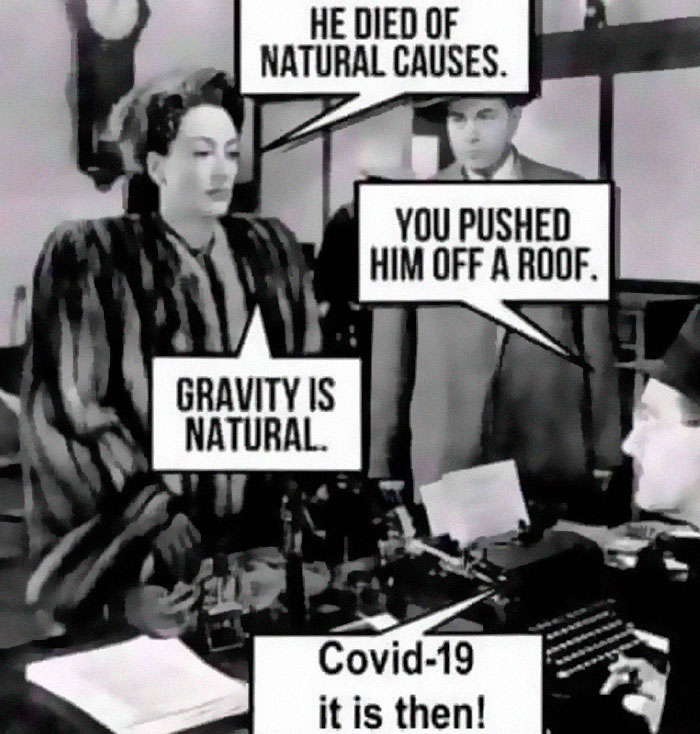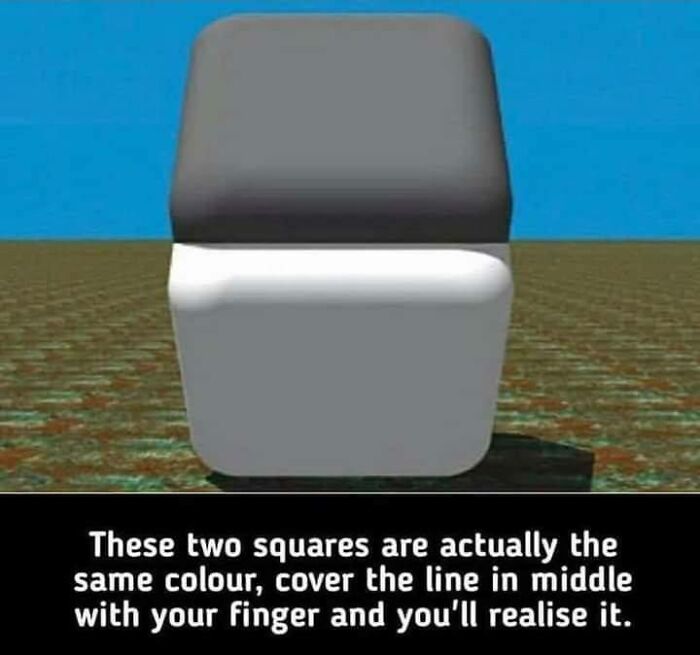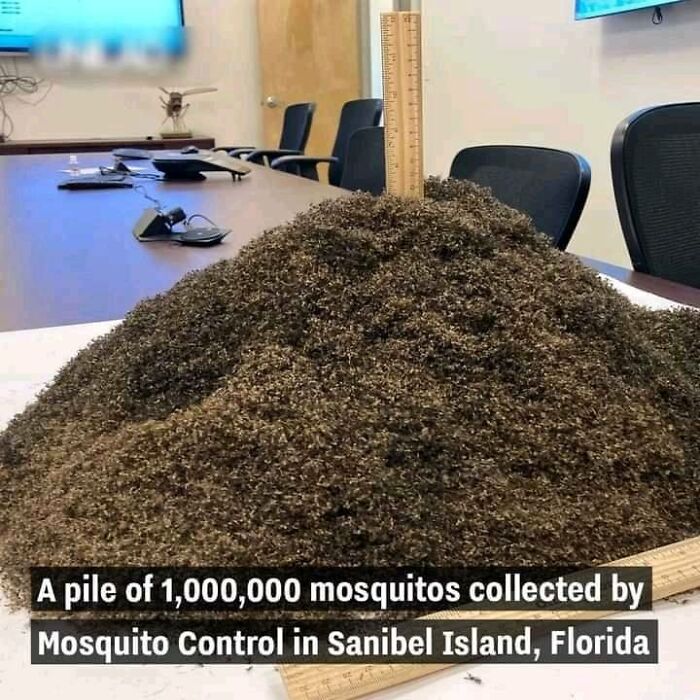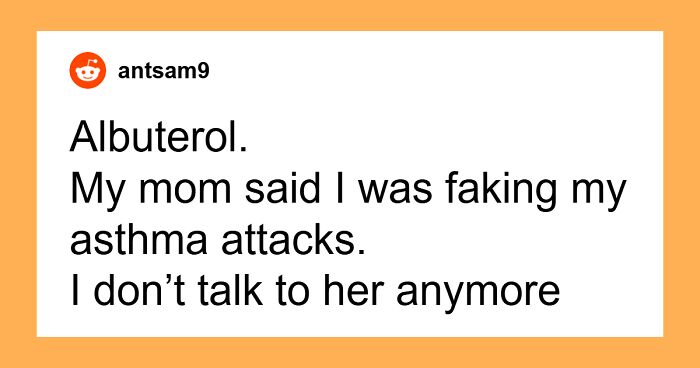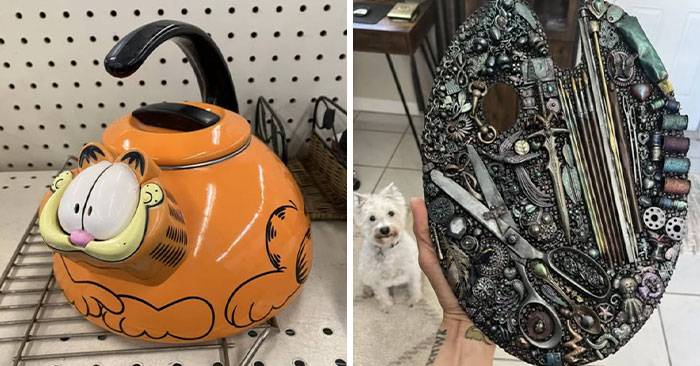If you glance at subjects like physics, chemistry, and even geography, they might seem boring. Just a bunch of numbers, equations, laws, and portraits of old men with crazy hairstyles and beards.
But if you take a deeper look, you will soon understand that there's plenty of room for entertainment. And the Facebook group "Science Humour" is an excellent example of that.
Its 440K members post, as the group's About section says, "the best science-related laughs, cartoons, puns, jokes, japes and antics," so we decided to put this bold claim to the test and put together a collection of pictures we found in this fun little corner of the internet and let you be the judge.
Continue scrolling to check out the images!
This post may include affiliate links.
If we were to take a scientific look at humor, at least as we understand it today, we'd see that it did not just randomly appear out of nowhere; according to Chris Robert, who received his Ph.D. from the University of Illinois in Industrial/Organizational Psychology, it is probably the result of millions of years of evolution.
"In its earliest forms, humor likely evolved from panting and grunting that occurred during non-serious fighting or other forms of play, or during social 'down time' among our ancient primate ancestors," Robert wrote in Psychology Today.
"Although there was nobody there to document the events with their cell phone, or to upload the video to YouTube, we can extrapolate from similar sounds and behaviors observed among modern primates. Over time, these sounds likely evolved into more specialized vocal sounds that we might now recognize as early forms of laughter... Early hominids that could make those early laughter sounds, and those who had the mental capacity to distinguish between laughter and non-laughter sounds, likely benefitted from stronger bonds with other individuals within their group."
This plan was so bad, a global pandemic emerged solely to prevent any successful Titanic voyage.
"She is Mary Ann Bevan who was known as the "ugliest woman in the world" but when you know her life you'll call her the "most beautiful person in the world." Marry Ann suffered from acromegaly due to which she had abnormal growth nd facial distortion. After the death of her husband, with no breadwinner in the house, accumulating debts and financial needs of her 4 children she decided to enter the humiliating contest and won the offensive title of "ugliest woman in the world" later she was hired by a circus, toured different cities where people came to laugh nd humiliate her. She endured the ridicule of others in order to raise her children nd give them a better quality of life. She died in 1933.
To this day, society judges people on their physical appearance, if our eyes could see souls instead of bodies, Mary Ann would have been the most beautiful woman in the world. "
Robert suggests thinking of it like this: 'funny' primates or early hominids were those who could make sounds that communicated the message, 'We're safe and happy now: Everybody relax and pick some bugs off each other. Eat them if you're hungry.'
"They could also identify those sounds when others in their social group made them, taking the context into account, and could respond appropriately," he explained. "'Non-funny' primates didn't pick up on the signals. They would get angry with others who were only trying to play, and might lash out inappropriately—this is not a good strategy for making friends or finding mates."
In today's world, these are the people at work you 'accidentally' forget to invite to a colleagues night out.
"Similarly, primates who mistook danger vocalizations for play vocalizations were the ones who let their guard down, showed up in the clearing with their rubber chicken and Groucho glasses, and became lunch for a prowling saber-toothed tiger."
Becoming someone's lunch makes it exceedingly difficult to pass on your genes. But those who could make and identify laughter sounds in others were probably more likely to reproduce and pass on genes too. Which helped their offspring create and/or distinguish between play and not-play sounds.
"Those with mutations that allowed them to make even better sounds, and detect the meaning of those sounds, were even more likely to form strong bonds, survive, and pass on their genes, and so on," Robert added.
True story. When my grandpa was a teenager, he worked for a traveling fair. His boss was a total ass and frequently demanded my grandpa work extra hours without paying him. On the last day, my grandpa cleaned everything he was supposed to and helped break down and pack the equipment for moving. The boss was still a jerk. He threw my grandpa the keys to his truck and told him to do some more work, then park the boss's truck in the garage while boss and crew went to the bar. My grandpa did all the work himself. Pissed that the adults never returned, he took the truck to the slightly oversized garage. He parked it. Then, little by little, he worked on parallel parking it. He swears it took him nearly an hour, but he got the truck in the garage entirely horizontally. He never saw that boss again but says he would've paid good money to see his reaction the next morning.
That's cute and also a little terrifying, it really does just like a fuzzy black hole with eyes
When I was in high school my chemistry teacher's license plate was "hiho ag"
Fast forward a million years and humor has developed in the human species as something much more subtle.
"At its core, humor involves the ability to detect and to create incongruities," the psychologist said. "Among our ancient ancestors, the incongruity might have been between behavior that looked like fighting, but which was understood as non-serious or play behavior because it was accompanied by cues such as laugh-like sounds. But as our cognitive abilities have progressed, in parallel with language abilities, so too has our ability to create and appreciate more complex and sophisticated incongruities."
bones of human
When you are hoping for a sibling so you get retired from being the remote
Yeah. But then you get promoted to the rabbit ears. (The antenna on top of the tv)
Load More Replies...I grew up in the 70's and I totally remember this. This little guy in the photo would come over to our house when we needed the channel changed. Nice kid. Great work ethic... /s
Yep every kid from that time remembers being used as the remote control
If we stood by the TV too long changing channels, my mother would tell us to hurry up and stand back because the radiation was going to harm us.
The good news is that it didn't take much time to decide which of the three channels you wanted to watch...
Load More Replies...We had a remote control for our living room TV in the 60s and 70s. We called it a stick. A long stick.
Yes. I was mom and dad's remote control! God I hated that. I swear I did it until 1989!
Then my parents upgraded to that box with all the number buttons connected to the TV by a wire.
Needs to also include the "antenna turner" from the 70s. One person stands by the TV, looking at the screen. The other sticks their hand out the door to manually turn the antenna to bring the channel in clearer. It goes like this: "A little more...a little more...more...STOP!...Wait, go back a little...a little more...no, that's too much - back the other way again!...more...more....STOP, THAT'S IT!"
Notice his right hand approach so as to not interfere with the view as he adjusted the contrast!
Oooh man, yeah! Antenna's on the roof that need adjusting, rabbit ears indoors that need adjusting, and the very WEIRD thing of when you're adjusting the ears and touching them, the picture clears right up. But if you let go? More fuzzy... this is pre-remote control so if you want the volume or channel changed, up you go to turn the dials.
My friend invited me over to their house, his mother had a strange box in her hand connected to the TV via a cable. It was a remote control, I'd never seen one before like it or since.
As the youngest of 5, I remember this all to well but, thank Deity, we only had two channels in The Netherlands in those days.
During much of my childhood, we only had one TV channel in Bulgaria... so it wasn't just a channel, it was THE channel :P
Load More Replies...I seriously think adults had kids back then with that exact use in mind.
In the '60s my remote had an on/off button and one button each for volume and channel changing.
Which is why I pretty much lived in my bedroom. Homework, you know.
Uhh guys i think yuo're getting it wrong i think the side of the tv with the buttons is the 'remote from the 70s'
Eee Gawd! I graduated hi school in 1971. I should just sell my rare and antique self on eBay.
We had 8 knobs to push and used a 2,50m long thin wooden stick...(Early 1990-ies).
At least when I grew up you only had four channels for dad to tell you to change to!
My very first 'remote' had a box on a cable that ran to the TV. We thought it was like the Jetsons, even though we tripped over it all the time, and it just had a slider bar to change channels with.
Ooph I remember the life as a remote control it was brutal...! but then my mother blessed me with siblings..! 3 of them infact! My days of changing (scrolling) the channels was over!!
Just as our ancient ancestors evolved to enjoy the simple play behaviors, early grunting-laughing sounds, and bonding that occurred throughout this process, we too still enjoy a good poop joke. Even though the humor that we appreciate tends to involve much more abstract and symbolic meaning than with physical play, the impact is no less real.
"You know if you know. Can't unheard it now."
For anyone who didn't understand it, *thump thump smack, thump thump smack, we will we will rock you*
"Humor as a form of play, even at higher levels of play with complex thoughts and ideas, is associated with positive emotions, and with positive feelings about individuals we are with when we experience that positive emotion," Robert said.
"As my colleague [Wilbanks] and I have noted elsewhere, humor, positive emotions, and stronger interpersonal bonds operate in mutually reinforcing spirals that stimulate the production of humor, and seeking out individuals with whom we can laugh and feel closer."
it also gives disappointment to those with a brain, we'd been hoping they'd die out
The interesting thing is that the highly abstract and symbolic nature of humor that we developed allows for many different forms of gags.
"Humor can build and destroy, strengthen and weaken, honor and besmirch, and perhaps all of these at the same time. This complexity is what makes it beautiful, and of interest to me, and I suspect to many other psychologists," Robert explained.
And as we can see from these pictures, they're not the only academics exploring the subject!
I don't make mistakes except for one time when I thought I had made a mistake - I was mistaken
I got some good laughs. Once again, the comments were way funnier than the original posts.
Careful not to let it happen too often, 7 days of it might make one week.
Load More Replies...I stumbled over this site while searching for something really important. 30 minutes later: This is great! I'm sharing it on my Facebook! ...what was I looking for? I got online to actually do something...
I love smart people jokes lol most o my friends would not understand…… o wel to bad for them they are missing out on a lot
I got some good laughs. Once again, the comments were way funnier than the original posts.
Careful not to let it happen too often, 7 days of it might make one week.
Load More Replies...I stumbled over this site while searching for something really important. 30 minutes later: This is great! I'm sharing it on my Facebook! ...what was I looking for? I got online to actually do something...
I love smart people jokes lol most o my friends would not understand…… o wel to bad for them they are missing out on a lot

 Dark Mode
Dark Mode 

 No fees, cancel anytime
No fees, cancel anytime 


